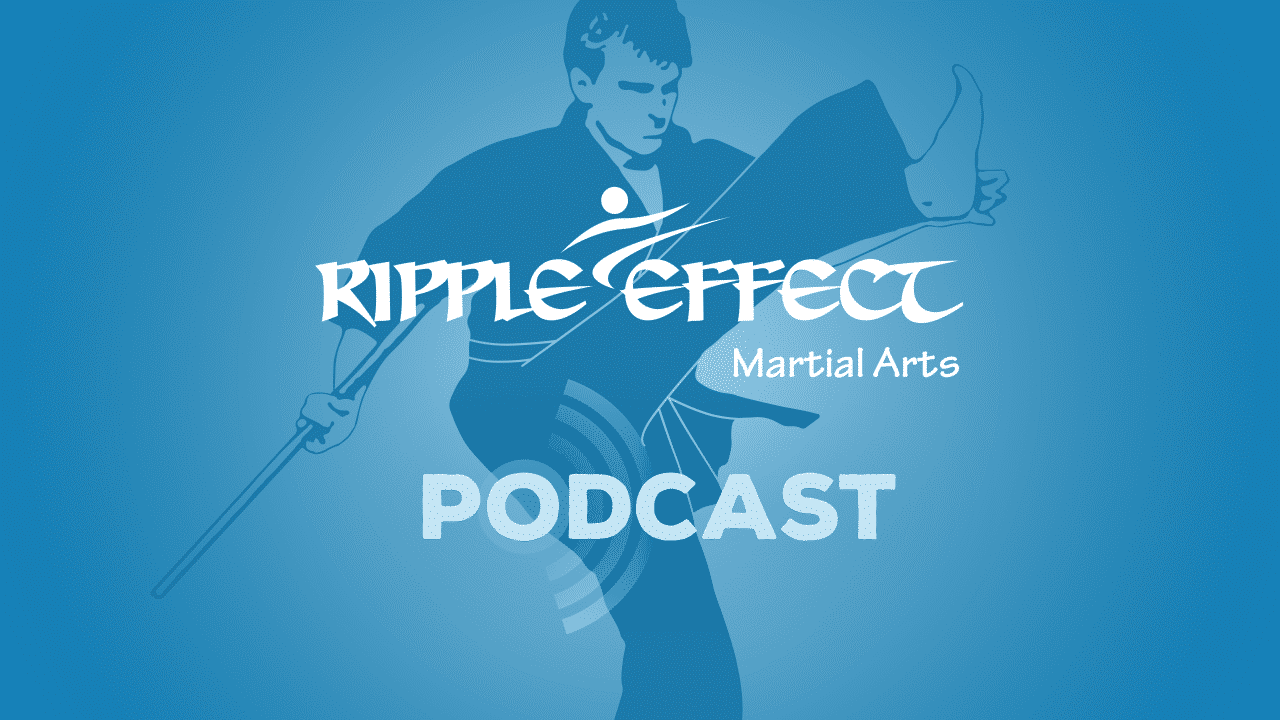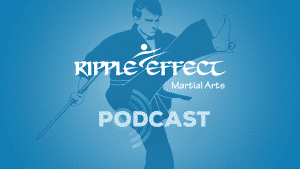How did you get your start in the martial arts?
I grew up in Germany in a very small town, where there weren’t any martial arts opportunities. When I was 13, my Mom enrolled me in a karate school. But it was 12 miles away. I biked to and from the karate school. Sometimes I hitchhiked to the karate school.
We were poor, and one big motivating factor for me to go to the karate school was the warm showers. I progressed fairly quickly, was a brown belt by 17 years old. At age 18 I won a national championship, and I was introduced to the German national karate team. I was on the team for six years.
Were you a natural at karate?
I was not really a natural. I was what I call motion dyslexic. It takes me a long time to learn a series of motions. But I like to work. I had good coaches, who encouraged me. And I like repetition, I like the progress of learning the new thing and taking the time to master motion. It takes a lot of time to master.
Later in life that gives you such beneficial insights. I have learned so much from my experience in the martial arts. I draw upon it every day.
When you talk about repetition, were you motivated by a sense of improvement? Did you have feedback that you were improving?
I had good coaches around me as a youth, and they correct you, a lot. You start out with some goofy move, they mold it into something much better.
Many people see correction as a negative thing. Society doesn’t want to be corrected. But that doesn’t work in marital arts. In marital arts if you don’t listen you stay dumb. If you don’t work you stay weak. Then you lose, and there’s no fun there. You have to have patience.
What was it like being in these major competitions, competing internationally as a teenager on an international stage?
The way I was trained, we were very goal oriented. We always focused on the next tournament, region, state, country, international martial arts competitions.
We trained with practice competitions. It was very intense, very reality driven. It put me in situations that were detrimental, and I had to learn to dig myself out. One particular drill is when you start out with your competitor with 5 points in play, and you’re at 0. You have to catch up. I was always conditioned to accept what the judges had to say, and they never saw my point, always saw the other guy’s point. But you couldn’t argue; it would serve nothing.
That applies to life. People try to argue with bosses, teachers. That doesn’t work. Just accept the feedback, and solve the problem. The problem is to gain the next point.
If you transfer that way of thinking to today, with your kids going through a karate program to earn their black belts, does that mindset still apply? The problem-solving mindset for kids?
Yes, for example my son Julian, who plays baseball, has only played baseball for 2 years. Many of his teammates have played baseball since they were 3 or 4 years old. Julian wasn’t the superstar at first, and the coaches brought him in for one extra try out, and said there’s one condition: Is he coachable? Can he take instructions and convert that into action?
They trained with him for two hours, and he improved a lot, and now he’s a force hitter, one of the strongest hitters for the team. He’s self-motivated, he goes to the batting cages hours before practice. He’s a good listener. Listening, correcting, repetition. Those skills come from earning a black belt in karate.
Does karate serve as a bedrock for building a career?
Oh yeah. For me it did, and many of my friends that went through the same training in martial arts are very successful today. I have a friend who trained on the national karate team with me who is a lawyer for a law firm in Dubai. I don’t know too many losers who went through that childhood program or youth program to black belt in the martial arts.
It is the strongest foundation in my life, from which I pull probably every day.
You talked to me once about goal setting at a tournament, and you said the goal of “why” is more important than the outcome.
Yes, as soon as you have a “why” you’re more motivated. But it’s all about the outcome. If you don’t have a goal, you can’t measure it against anything.
What I know is that this [karate, black belt training, competition] has been very successful for me. Now you bring it into the life of the children, basically say “this is what you’re going to do.” They may not say that “this is the greatest thing ever, I love it.” My children were very young when they started karate training, they had black belts before I had even started karate. Now that it’s 8, 9 years later, they realize the importance of that discipline of martial arts training.
What motivated you to take up martial arts training again in Colorado?
My children are very important to me and I wanted a chance to do an activity with my kids, together as a group. Master Macy was a friend and when he started Ripple Effect Martial Arts, I knew it was a good fit. That was the most motivating factor, to do something fun with my kids.
Seeing my kids earn their black belt was actually more emotional to me than earning a black belt myself. But I was there. I was there.


